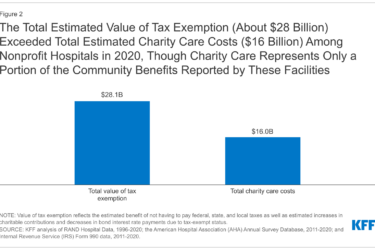In the latest installment of the Columbia Journalism Review‘s “Excluded Voices” series, Trudy Lieberman, president of AHCJ’s board of directors, talks with Timothy Jost about consumer-driven health plans. Jost, a law professor at Washington and Lee University and author of “Health Care at Risk: A Critique of the Consumer-Driven Movement,” says that, while there are many specific types of consumer-driven plans, they all, at heart, shift the responsibility to pay for health care to the consumer.
Jost said the idea behind such plans was that, once they had shouldered the payment burden thanks to deductible averaging around $4,000, consumers would go to the doctor less frequently and be more cost-conscious during the visits they do make. Jost takes issue with the assertion, saying that data show that workers with consumer-driven plans are healthier simply because the healthy workers are more likely to switch to consumer-driven plans than their less-healthy counterparts.
According to Jost, consumer-driven plans may lead to cheaper insurance, but not to cheaper or more effective care.
“People in high deductible plans have a harder time getting care. They are more likely not to fill prescriptions or go to the doctor, and less likely to get the health care they need. A study by the RAND Corp. showed that consumers could not discriminate between non-essential care and necessary care, and they basically saved money by not going to the doctor.”
Furthermore, Jost says, consumers can not be relied upon to drive down health care costs by “shopping around” because they lack the information and clout to be as effective as the federal government or private insurers.
Jost says they also raise legal issues, such as whether doctors are obligated to provide information about cost as well as risks and benefits or if insurers are liable to patients or providers if they provide incorrect information in their quality rankings.









